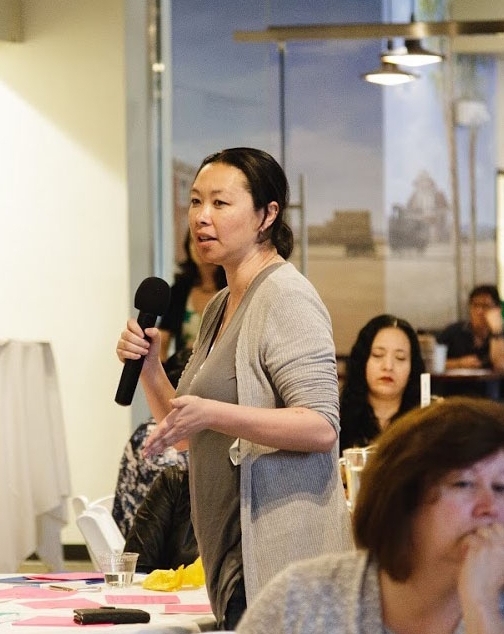About
-
History of Service Learning and Community Engagement within the California State University System:
Beginning in the 1990s, the California State University (CSU) began to recognize the value of service learning as a vehicle that would meet the state's changing educational needs while also imparting vital civic skills and knowledge. In 1997, infrastructure was established at all 23 campuses and the systemwide office, the Board of Trustees passed a landmark resolution calling for the creation of service opportunities for all students, and outside funding was secured (calstate.edu/cce).
History of Service Learning and Community Engagement at Cal State East Bay:
In 2001, service learning was institutionalized through the (now-defunct) Office of Instructional Services and the hiring of a Director of Service Learning. After being housed briefly in 2004 in Academic Programs and Graduate Studies, the Service Learning Program moved into Faculty Development, and since then Faculty Support Services. The mission of the Service Learning Program was to support faculty and community partners. In 2013, the Service Learning Program became the Center for Community Engagement, broadening the scope of work to include a variety of curricular and co-curricular efforts. -
Community engagement at Cal State East Bay is largely de-centralized, meaning that a variety of programs and departments across the university coordinate their own community engagement efforts. The primary functions of the CCE are to:
- advise and consult on best practices
- develop and share resources
- help connect interested campus and community members
- support community-based learning courses through the CalStateS4 web application
- support scholarship, research, and grants related to community engagement
- develop and maintain community partnerships
- coordinate co-curricular programs and activities
-
Community Engagement within Majors - Students in a wide variety of undergraduate majors take community-engaged classes:
- Accounting
- Anthropology
- Art
- Biology
- Criminal Justice
- Dance
- Education
- Environmental Science/Studies
- Ethnic Studies
- Health Sciences
- History
- Human Development
- Honors Program
- Hospitality, Recreation, Tourism
- International Studies
- Kinesiology
- Liberal Studies
- Marketing
- Modern Languages
- Music
- Nursing
- Physics
- Political Science
- Sociology
Current List of Courses
-
Vision:
To foster transformative learning experiences and meaningful partnerships that inspire students to be empowered citizens, leaders, and professionals.
Mission:By fostering community-engaged teaching, learning, and partnerships, the Center for Community Engagement connects students with real-world learning experiences that enrich academic learning, foster civic responsibility, and equip students with the skills and networks essential for success in a diverse and evolving world.
Strategic Directions:- Facilitate Academic Community Engagement (Experiential Learning Courses: Community Engaged Learning, Service Learning, Internships)
- Facilitate Co-Curricular Community Engagement Opportunities
- Strengthen and Advance Center for Community Engagement Collaborations
-
The Chancellor’s Office (CO) is in the process of aligning an understanding of community engagement across the system to strengthen data collection around community engaged courses. The CO uses community-engaged learning (CEL) as the umbrella term to identify a broad array of courses in which community engagement is embedded, with Service Learning referring to a distinct and robust pedagogy.
Starting in 2020-21 there will be two required course attributes in place: CSLI (service learning courses), and the new CCEL (curricular community-engaged learning courses). All CSU campuses will be undertaking an inventory of courses that contain some type of community engagement in order to apply the correct course attribute in the Course Management System. Attributes will be applied to courses based on faculty response to an online survey regarding course curriculum and how community partnerships are managed. Faculty response to the survey is a required and important part of this process.
Our campus currently applies the CSLI course attribute (created by the CO years ago) on a broad array of these types of learning experiences. The identification process for these courses has been largely informal on our campus (and many others throughout the CSU). The course survey will facilitate a more accurate process of course identification and tracking for data collection. Overall, this process will enable us to more accurately identify and support student learning experiences and faculty efforts around this work.
Please visit the Community Engagement Course Attribute page for complete information.
-
For updated information on the course identification process, please review material at the Community Engagement Course Attribute tab.
The process of identifying these types of courses has been a work in progress over many years, and continues as courses were transformed for semesters. Using catalog descriptions and in conversation with faculty/departments, the CCE has identified relevant courses. Some of these courses have also been developed from curriculum development grants through the CCE.
Any faculty member can choose to implement a community engagement project/assignment in a class. A course does not need to have been previously identified “service learning” or “community engaged” on the list of courses. The CCE supports all faculty who are interested in implementing a project – and any course can be loaded into the CalStateS4 system to assist faculty with student placements and community partnerships.
The Chancellor’s Office requires that community-engaged courses be flagged within course management systems. There are currently two attributes that function to identify these courses within the catalog for students (and for loading into CalStateS4) – CSLI (“Community Service Learning” – community engagements/service learning courses) and NTRN (Internships – as a follow up to EO 1064). Occasionally courses are flagged as both if a course is titled “internship” and student activities benefit the community. (For updated information on the course identification process, please review material at the Community Engagement Courses tab.)
The CCE works with Academic Programs and Services and Enrollment Management Systems to have identified courses flagged within PeopleSoft. We identify courses that are “institutionalized” as community engaged (meaning every time the course is offered there is a community engaged learning component) and temporarily CEL (meaning that a faculty member has elected to implement a community engagement project for one term in a particular course).
Each term we use this list to report on community engagement data as required by the Chancellor’s Office and university administration. Courses/faculty using the CalStateS4 system do not need to report separately since the CCE manages S4 for the campus and can collect data directly through the web platform. Courses/faculty not using CalStateS4 need to report data separately to the CCE.
A note on course titles and terminology: Community engagement and service learning are terms used to describe the type of learning experience a student may have within a course. Courses titles may or may not explicitly reference these terms; however the learning experiences are directly related to outcomes associated with community engagement and service learning (for more information on this see Assessment/Rubrics).
- Community Engagement - An umbrella term, “the collaboration between institutions of higher education and communities for the mutually beneficial exchange and production of knowledge and resources in a context of partnership and reciprocity.”
- Community-Engaged Learning (CEL) - Broad term used to classify the variety of curricular community-based learning experiences and activities that students engage in that benefit the community. A course is considered ‘community-engaged’ based on implementation, not title or course label. Within CEL, practices vary widely in terms of depth, breadth and scope of student activities and partnerships. CEL courses may use such terms as fieldwork, applied, practicum, internship, service.
- Service Learning (SL) - A specific type of Community-Engaged Learning in which substantive community engagement and the related community partnerships are a critical component of course learning, with equal focus on community impact and student civic learning.
Current List of Courses
-
The Committee on Instruction & Curriculum (CIC) Subcommittee on Service Learning
The Service Learning Subcommittee of CIC reviews issues pertaining to community engagement and service learning across the curriculum and all aspects of community engagement as it pertains to University curriculum and instruction. The SL Subcommittee functions as a faculty advisory board for the CCE.
https://www.csueastbay.edu/senate/committees/cic/service-learn-sub-of-cic.html
-
 Emily Chow, Senior Coordinator- Partnerships and Operations
Emily Chow, Senior Coordinator- Partnerships and Operations Mary D'Alleva, Director
Mary D'Alleva, Director Tania Martinez, College Corps Coordinator
Tania Martinez, College Corps Coordinator  Aikisha Reeves, Administrative Support Coordinator, College Corps
Aikisha Reeves, Administrative Support Coordinator, College Corps Zhengnan Zhang, Student Placement Systems Coordinator
Zhengnan Zhang, Student Placement Systems Coordinator